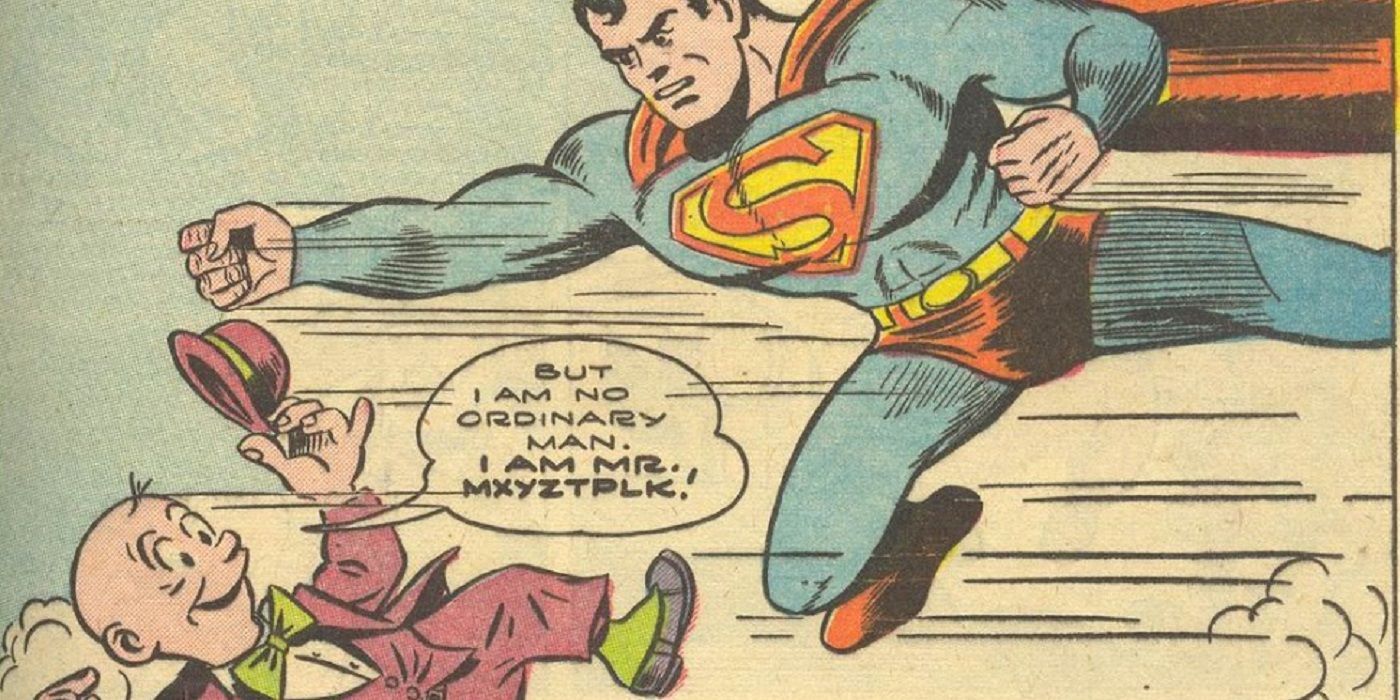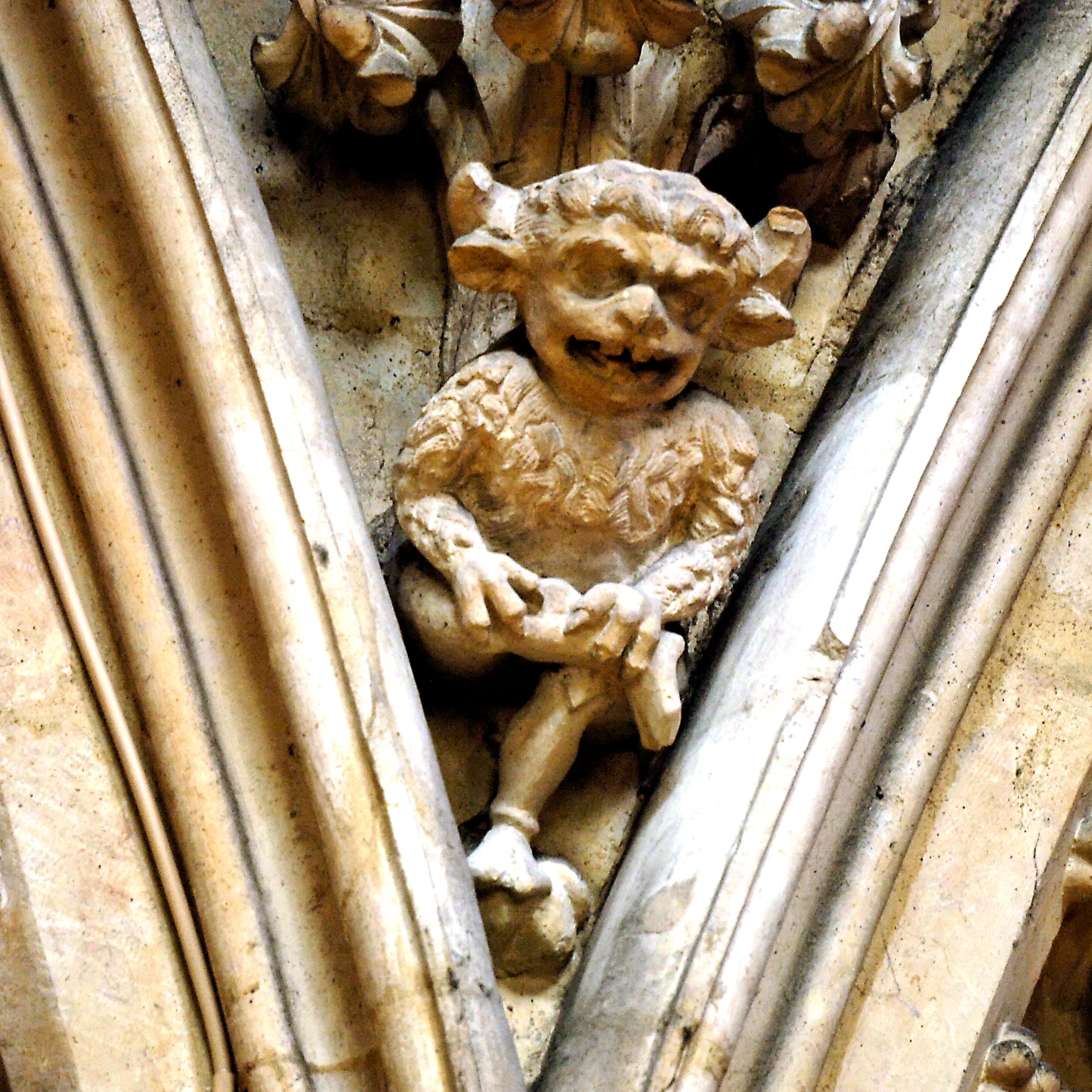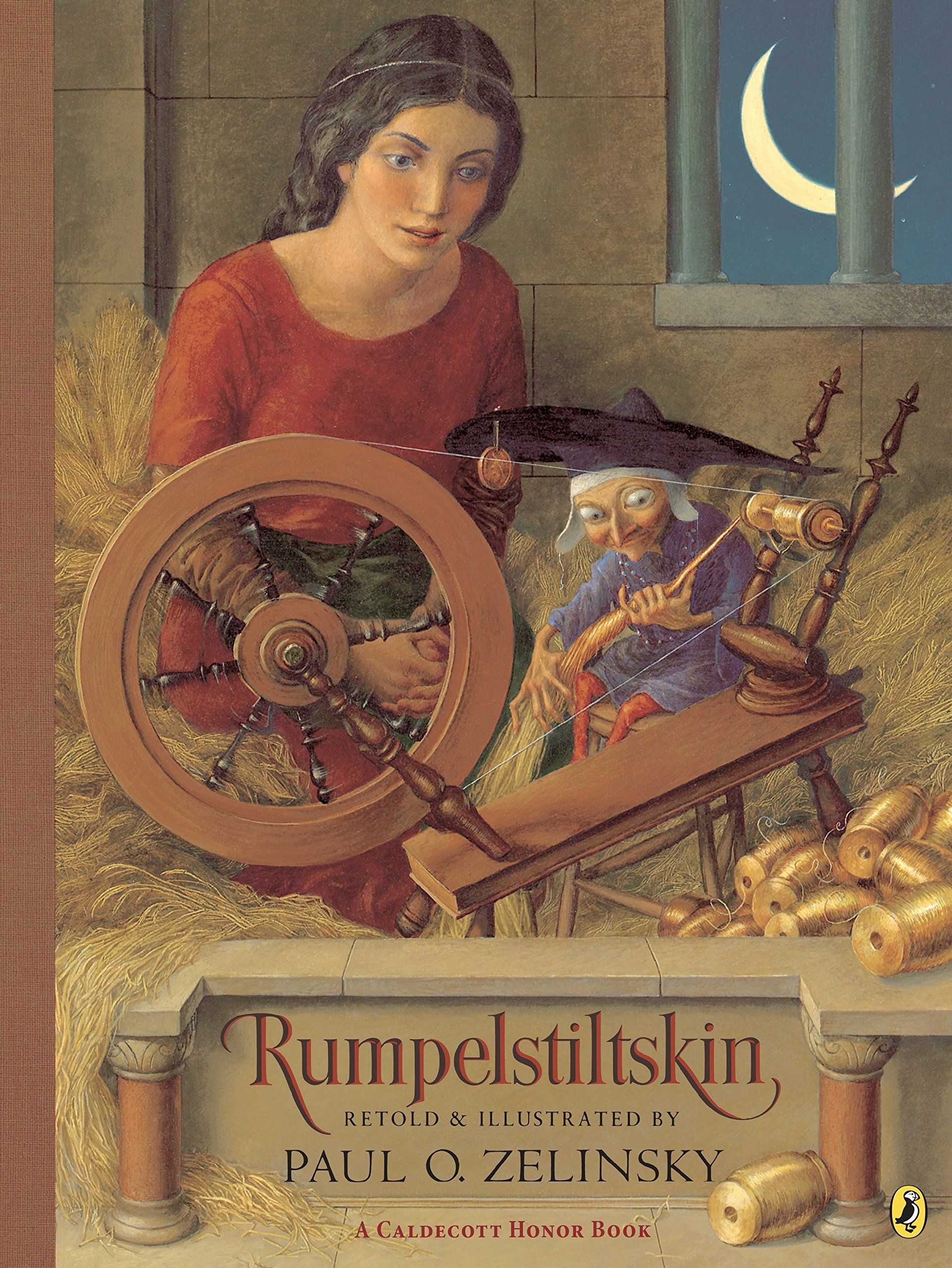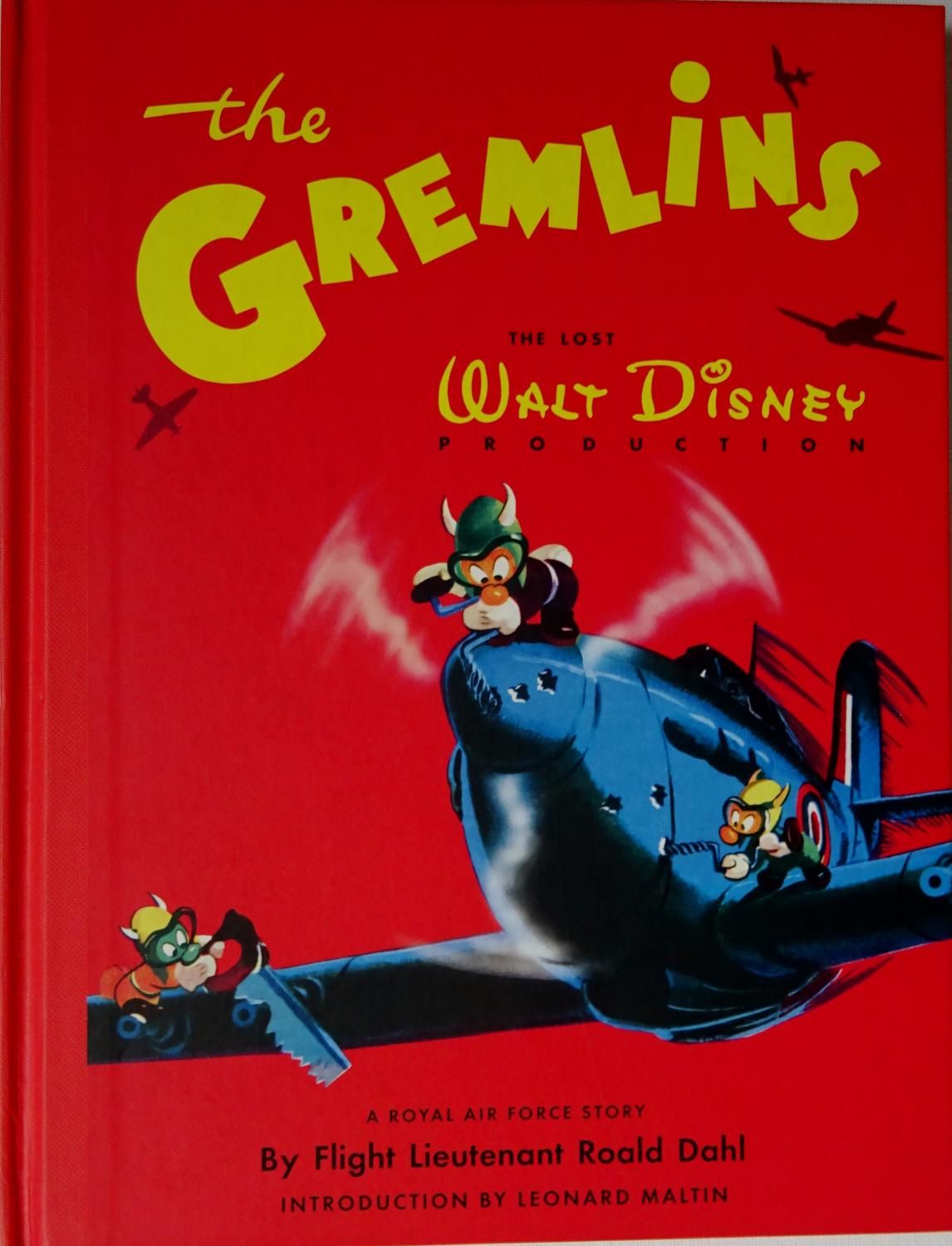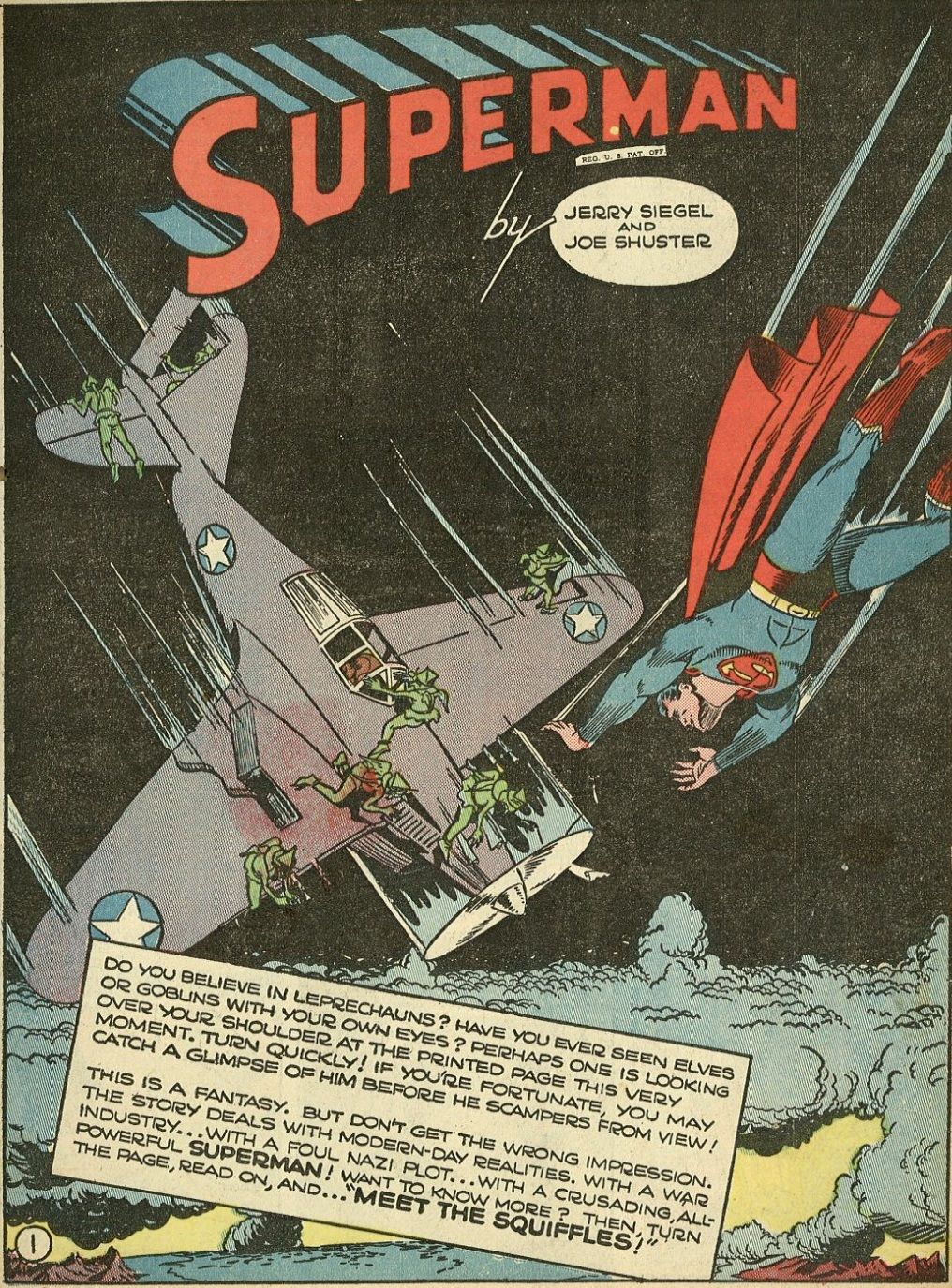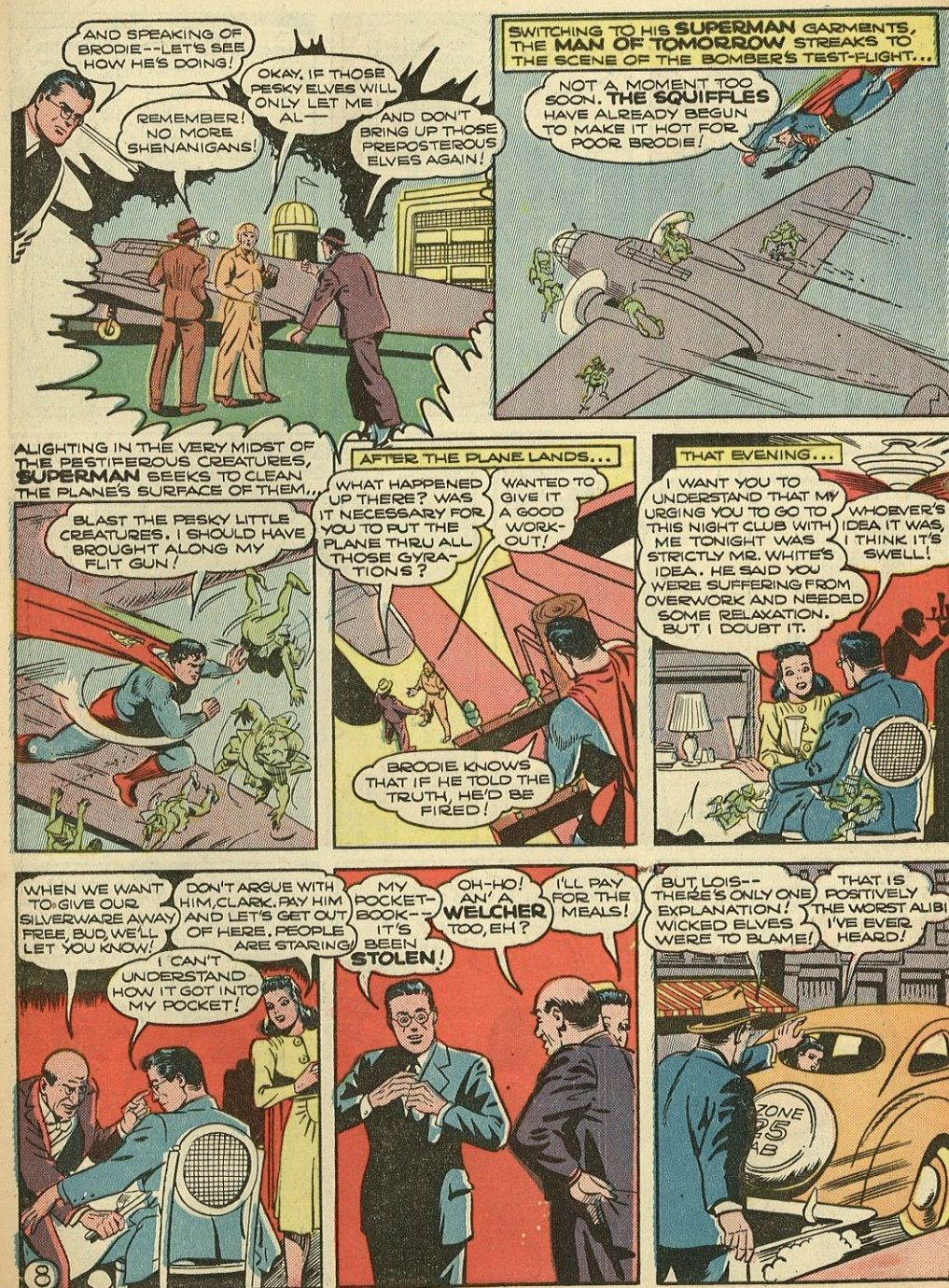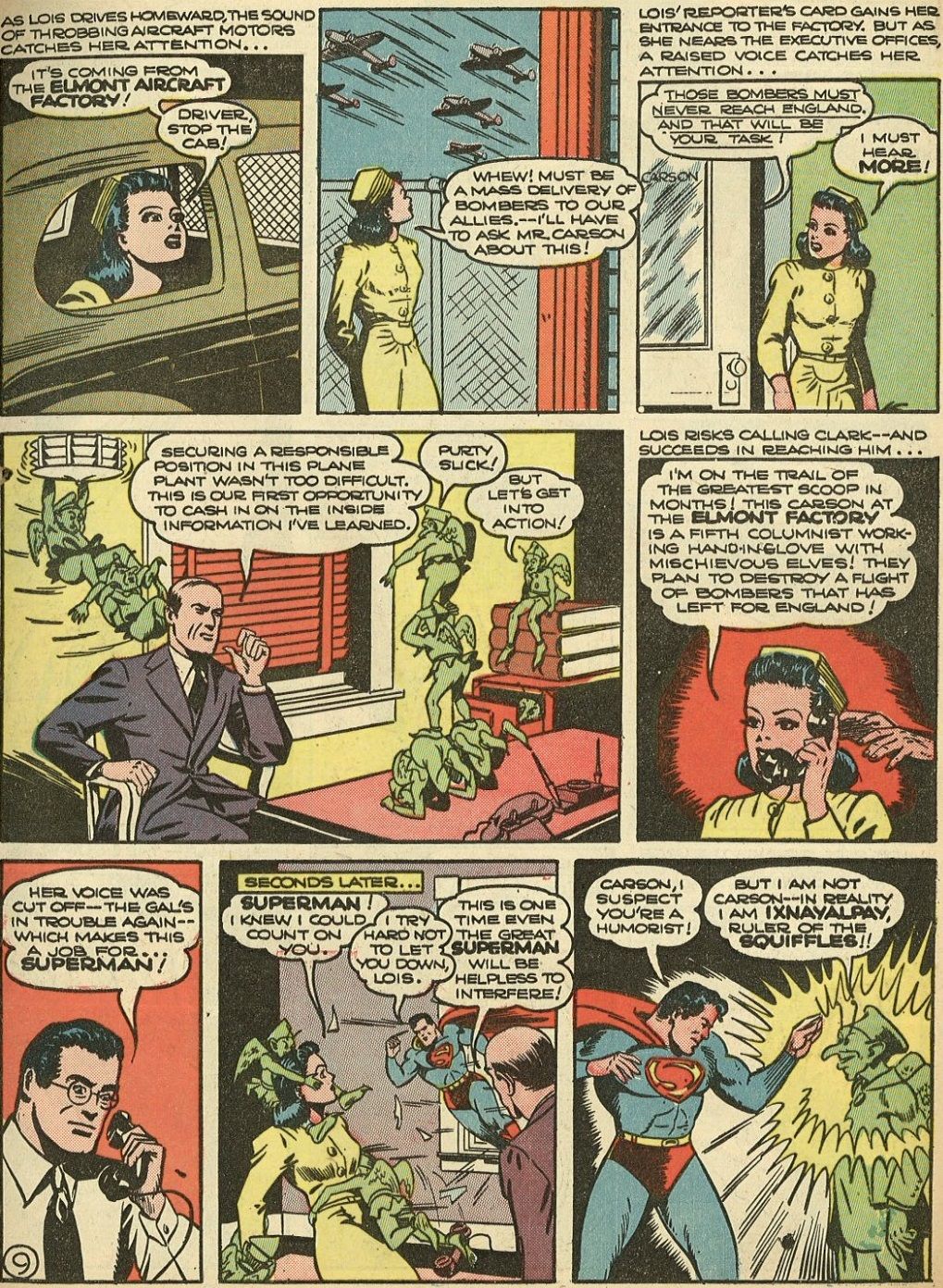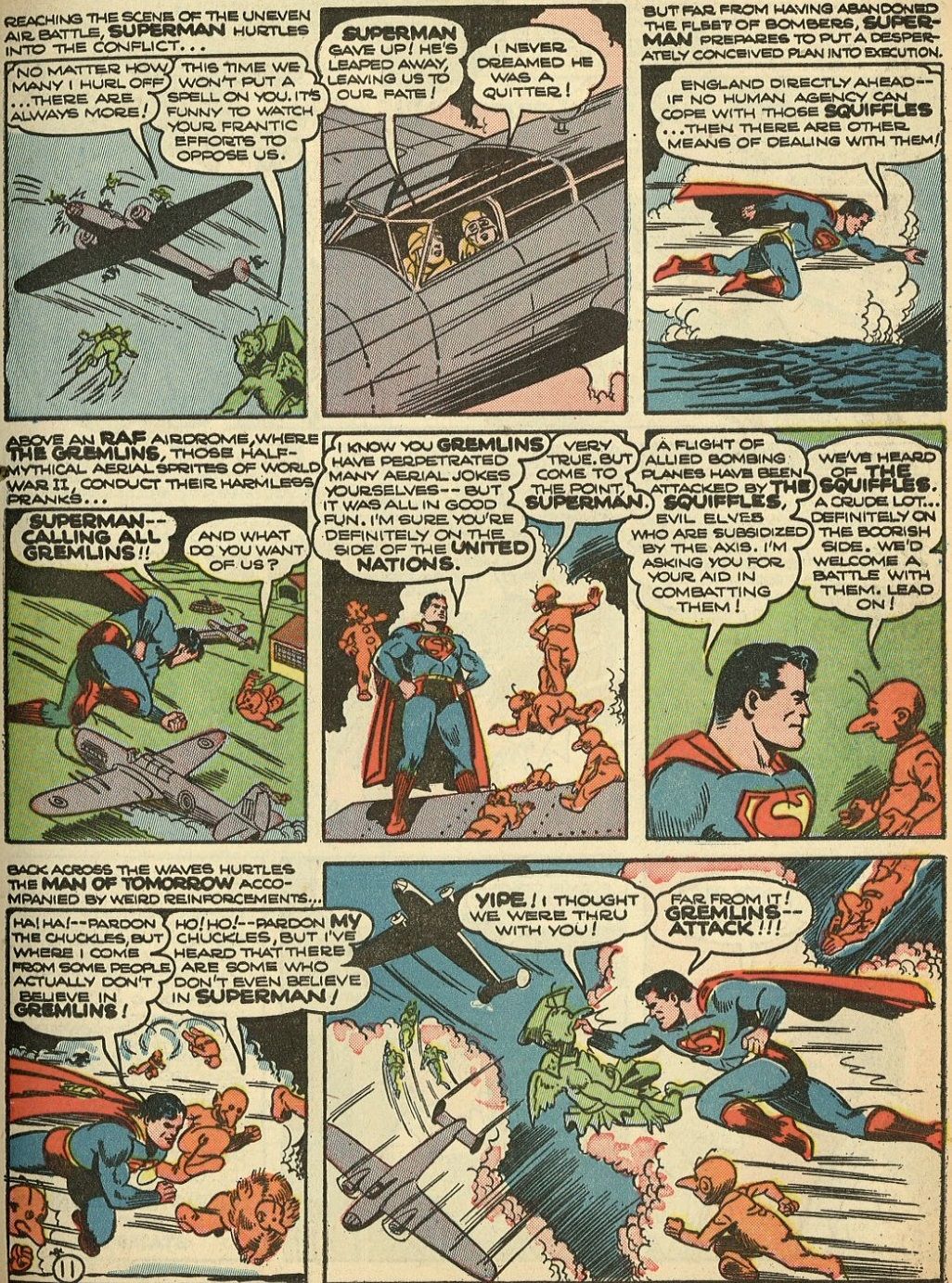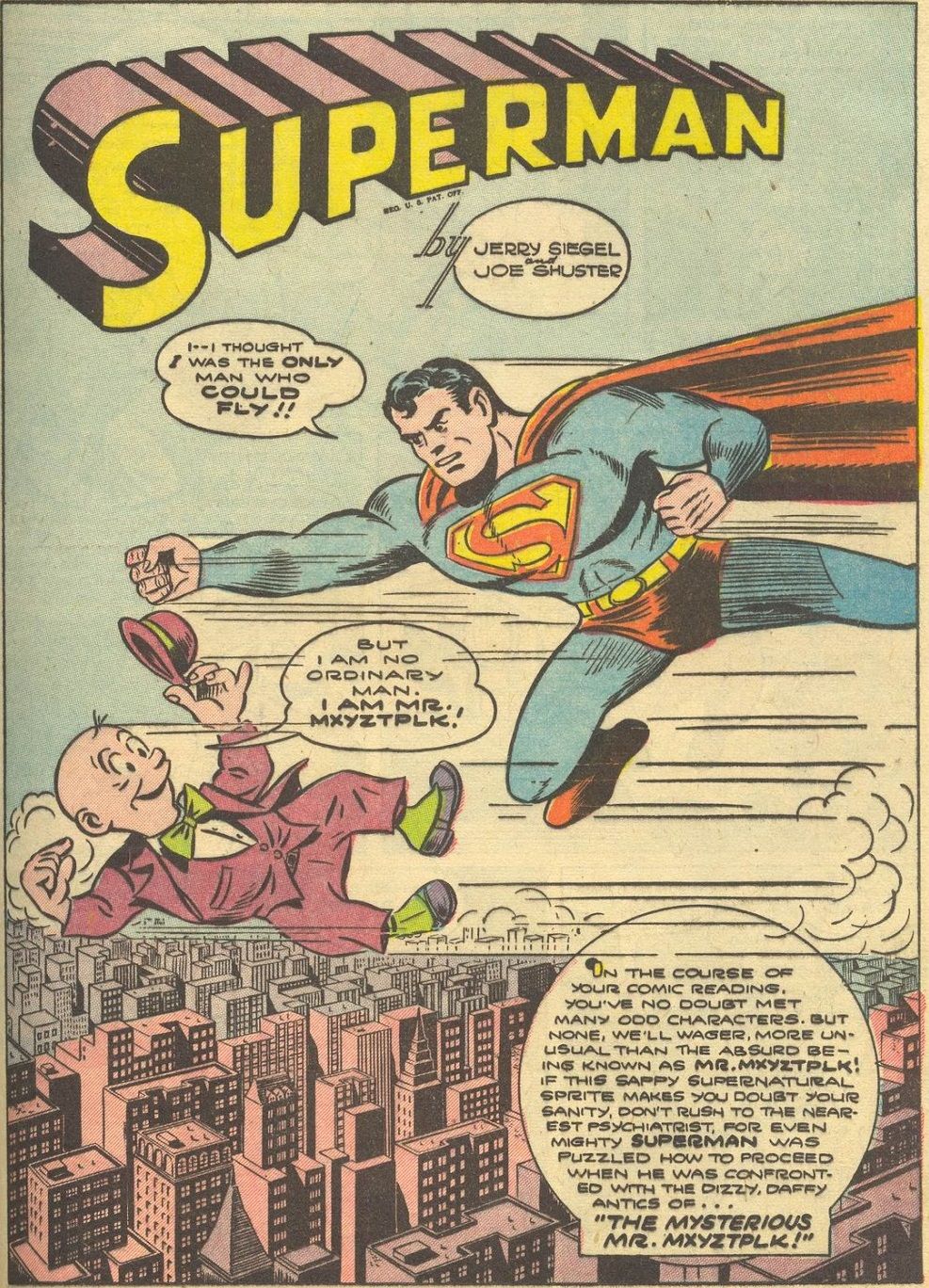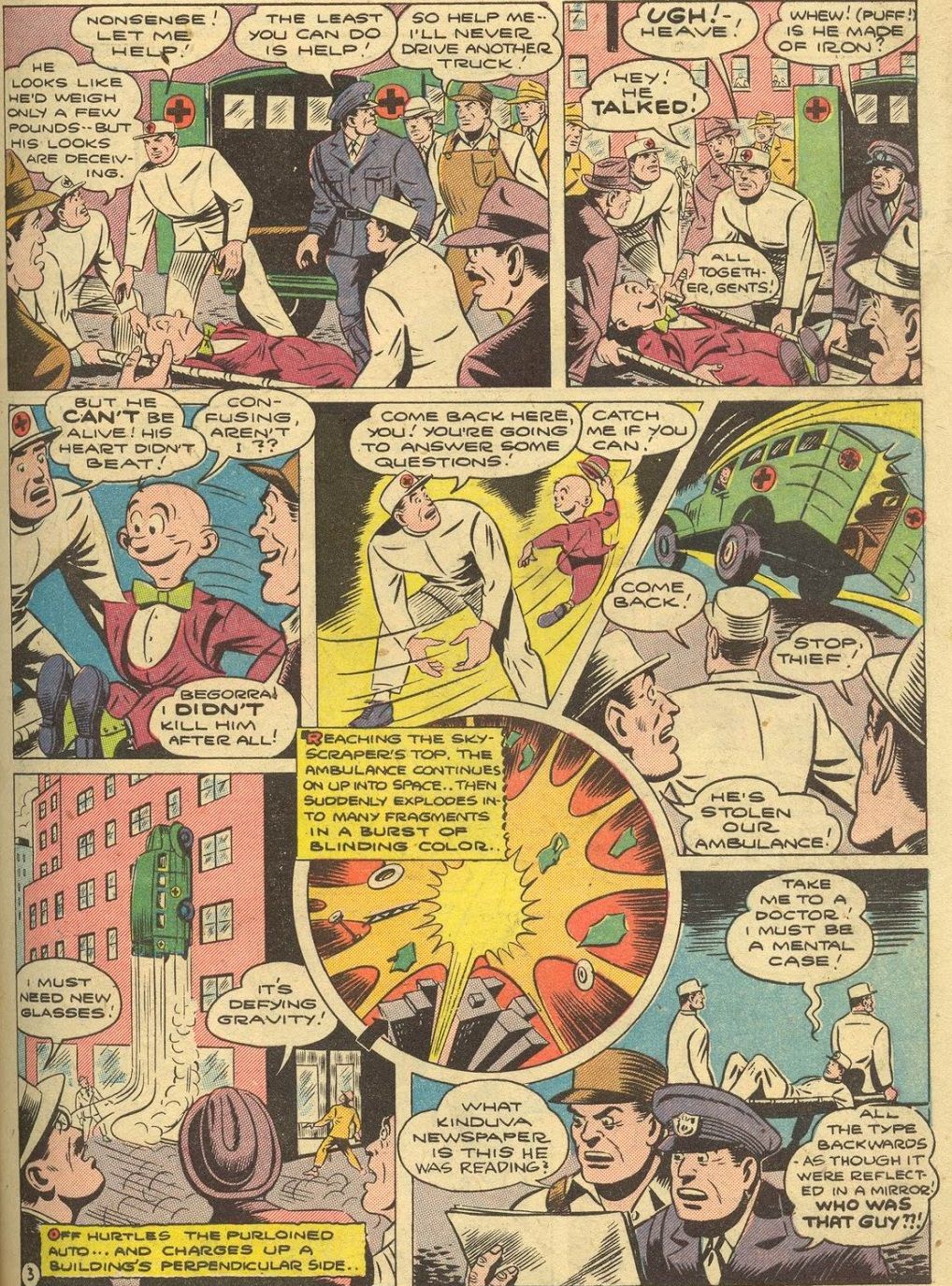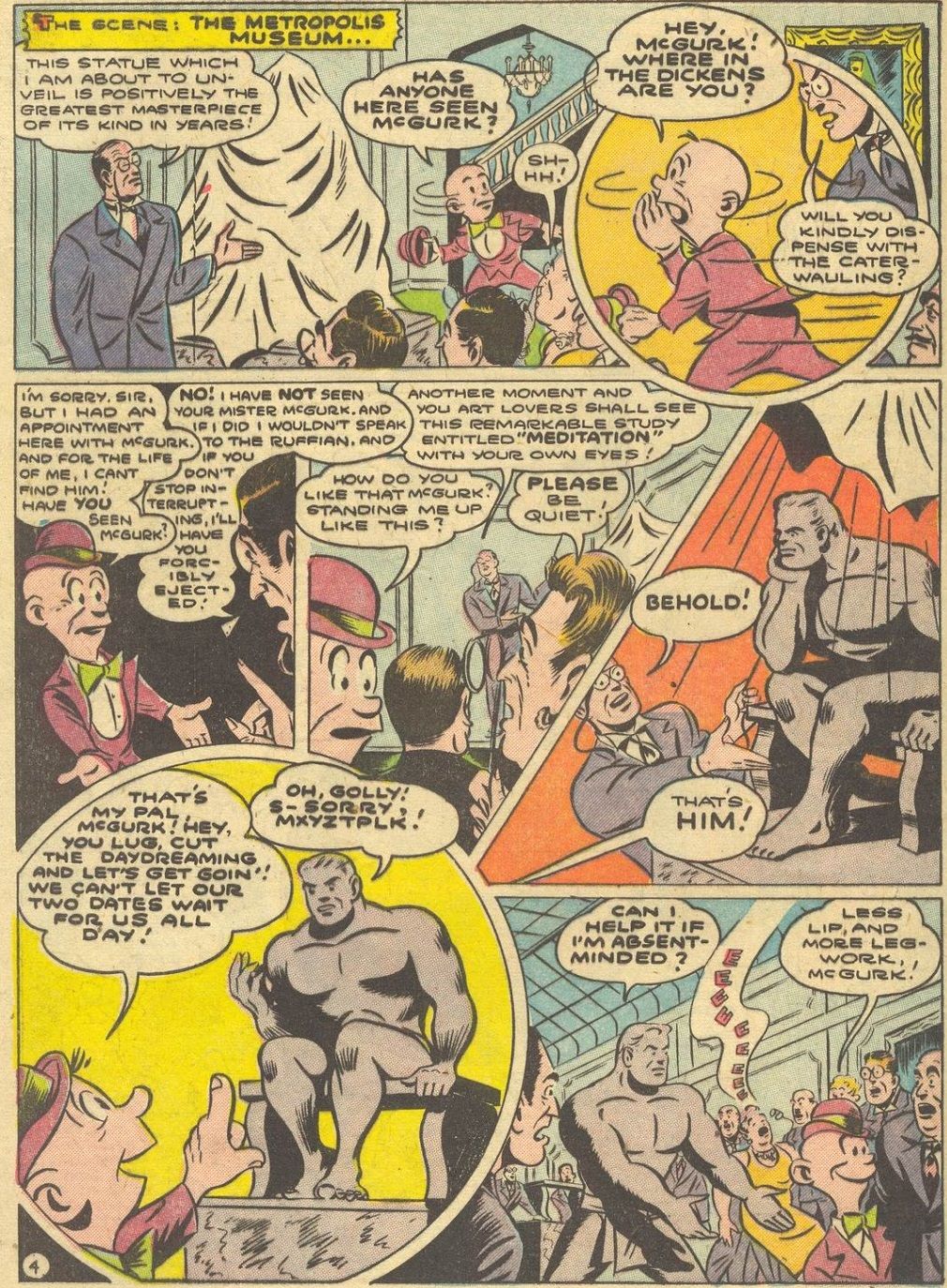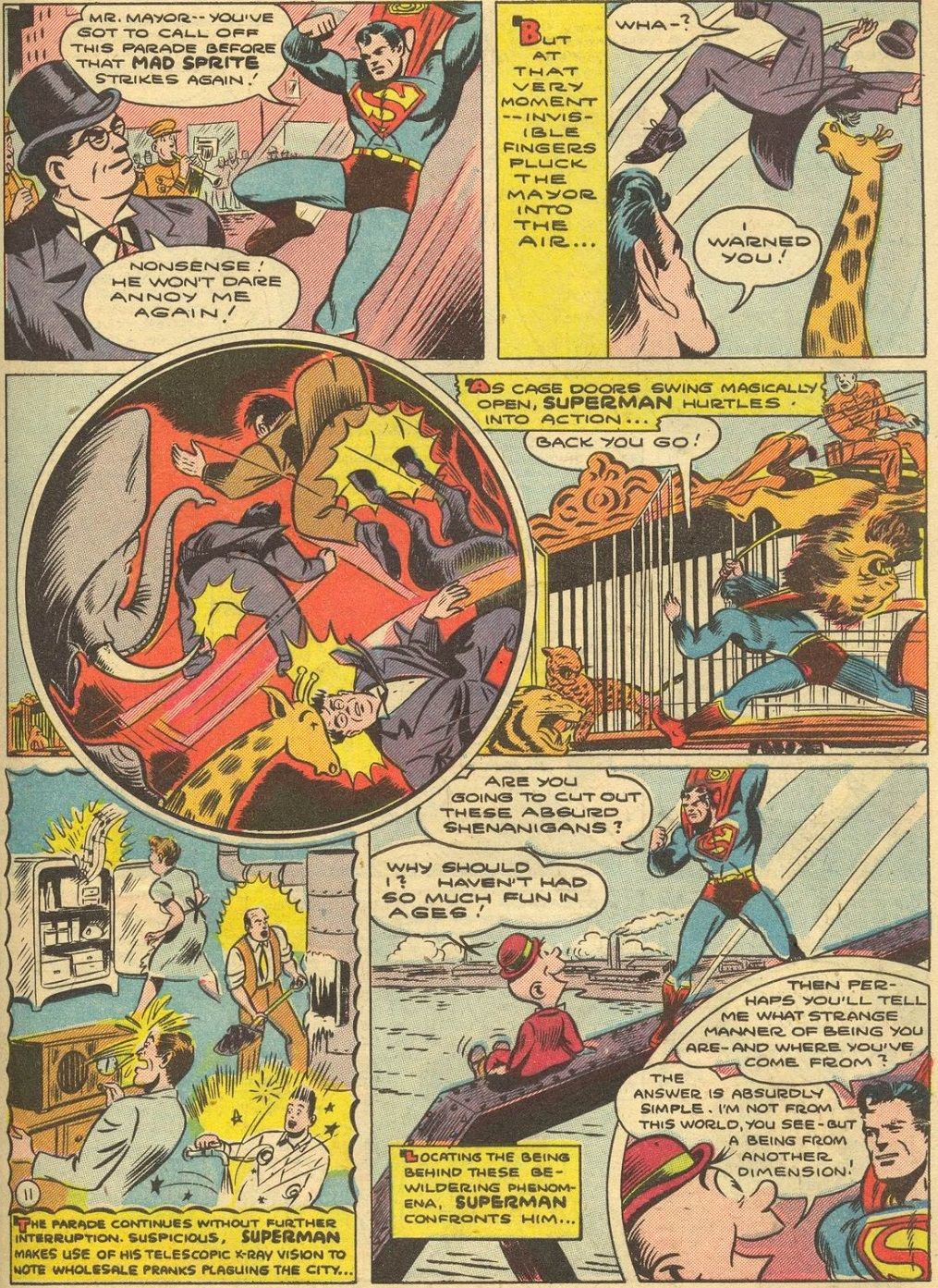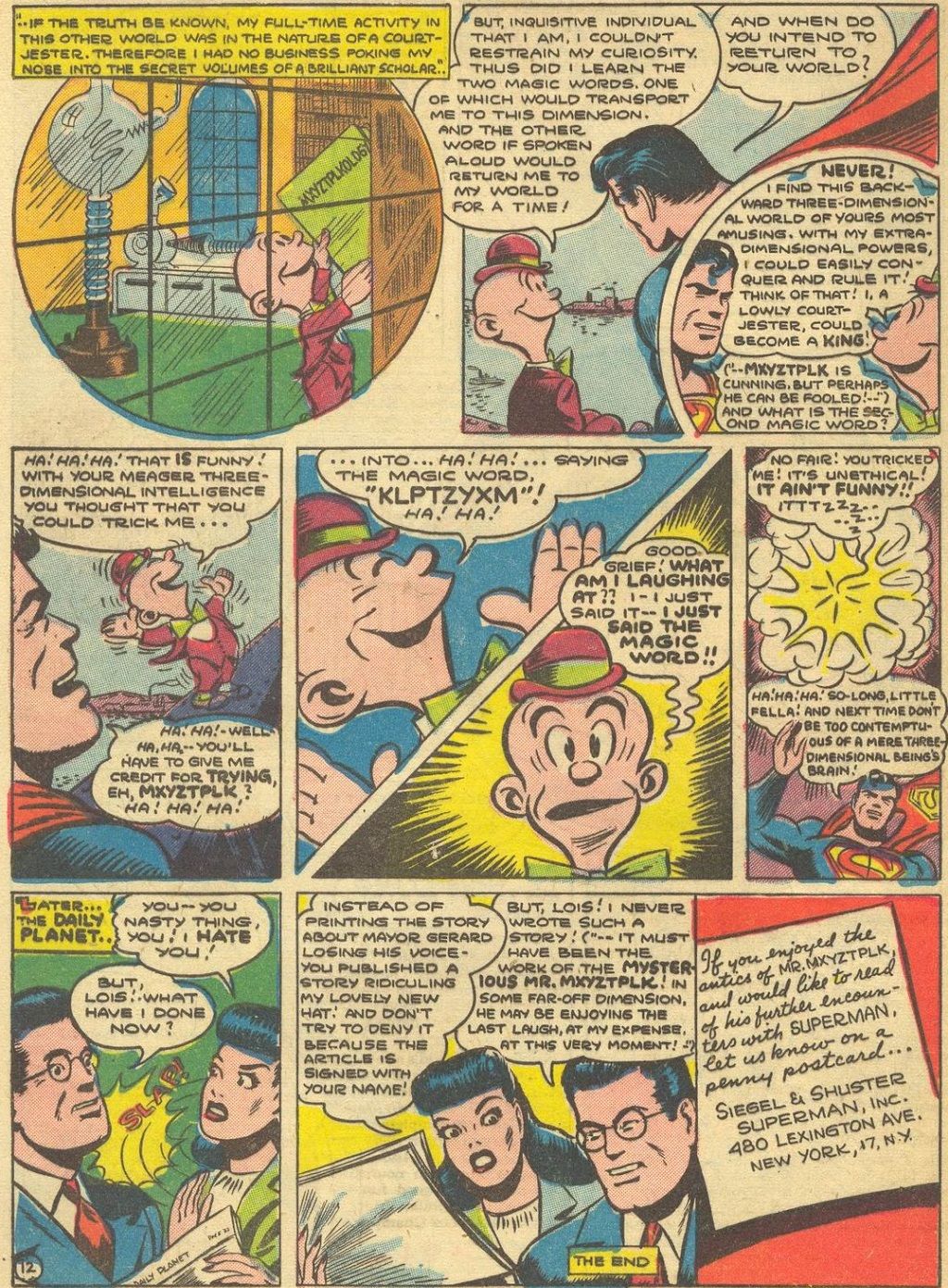This is "Look Back," a brand-new feature that I plan to do for at least all of 2019 and possibly beyond that (and possibly forget about in a week, who knows?). The concept is that every week (I'll probably be skipping the four fifth weeks in the year, but maybe not) of a month, I will spotlight a single issue of a comic book that came out in the past and talk about that issue in terms of a larger scale (like the series overall, etc.). Each week will be a look at a comic book from a different year that came out the same month X amount of years ago. The first week of the month looks at a book that came out this month ten years ago. The second week looks at a book that came out this month 25 years ago. The third week looks at a book that came out this month 50 years ago. The fourth week looks at a book that came out this month 75 years ago.
Today, we look at the June 1944 debut of Mister Mxyztplk, a character who comes from a long line of mischievous imps.
First off, let us see what Mythology.net gives for the definition of imps:
Imps are minor magical creatures with a big appetite for the spotlight. Always desirous of attention, they act out through practical jokes and small outbursts of magic, trying to get anyone to pay attention to them. Unfortunately, they are so small and unimportant that they don’t succeed at getting much attention—except, perhaps, from crafty evildoers who are willing to take them on as slaves.
The Imp’s appearance certainly doesn’t help him ingratiate himself with others. By all accounts, Imps are small, bony, unattractive creatures. Their faces are like masks of thin stone, which are frequently twisted into a smirk or a grimace. Oversized ears and horns sprout from their heads, just as leathery, bat-like wings sprout from their shoulders. Their skin, ranging in color from purple to red-brown to gray, may be scaly or stone-like, and they walk with an unpleasant hunch.
Some of these unpleasant creatures more closely resemble monkeys or cats than humans. Their noses are elongated into snouts, and they prefer to move on four paw-like hands rather than walking on their hind legs.
Occasionally, an Imp might be magically bound to an object, like a bottle, a crystal ball, or a staff. They may take a corporeal form when summoned from this object, or they may lose their corporeal form altogether and exist only as a spirit in the object.
A notable depiction of an imp is the so-called "Lincoln Imp" in Lincoln Cathedral in England...
One of the most notable imps is Rumpelstiltskin, who appears in the following story in the collection of fairy tales by the Brothers Grimm...
Once there was a miller who was poor, but who had a beautiful daughter. Now it happened that he had to go and speak to the king, and in order to make himself appear important he said to him, "I have a daughter who can spin straw into gold."
The king said to the miller, "That is an art which pleases me well, if your daughter is as clever as you say, bring her to-morrow to my palace, and I will put her to the test."
And when the girl was brought to him he took her into a room which was quite full of straw, gave her a spinning-wheel and a reel, and said, "Now set to work, and if by to-morrow morning early you have not spun this straw into gold during the night, you must die."
Thereupon he himself locked up the room, and left her in it alone. So there sat the poor miller's daughter, and for the life of her could not tell what to do, she had no idea how straw could be spun into gold, and she grew more and more frightened, until at last she began to weep.
But all at once the door opened, and in came a little man, and said, "Good evening, mistress miller, why are you crying so?"
"Alas," answered the girl, "I have to spin straw into gold, and I do not know how to do it."
"What will you give me," said the manikin, "if I do it for you?"
"My necklace," said the girl.
The little man took the necklace, seated himself in front of the wheel, and whirr, whirr, whirr, three turns, and the reel was full, then he put another on, and whirr, whirr, whirr, three times round, and the second was full too. And so it went on until the morning, when all the straw was spun, and all the reels were full of gold.
By daybreak the king was already there, and when he saw the gold he was astonished and delighted, but his heart became only more greedy. He had the miller's daughter taken into another room full of straw, which was much larger, and commanded her to spin that also in one night if she valued her life. The girl knew not how to help herself, and was crying, when the door opened again, and the little man appeared, and said, "What will you give me if I spin that straw into gold for you?"
"The ring on my finger," answered the girl.
The little man took the ring, again began to turn the wheel, and by morning had spun all the straw into glittering gold.
The king rejoiced beyond measure at the sight, but still he had not gold enough, and he had the miller's daughter taken into a still larger room full of straw, and said, "You must spin this, too, in the course of this night, but if you succeed, you shall be my wife."
Even if she be a miller's daughter, thought he, I could not find a richer wife in the whole world.
When the girl was alone the manikin came again for the third time, and said, "What will you give me if I spin the straw for you this time also?"
"I have nothing left that I could give," answered the girl.
"Then promise me, if you should become queen, to give me your first child."
Who knows whether that will ever happen, thought the miller's daughter, and, not knowing how else to help herself in this strait, she promised the manikin what he wanted, and for that he once more spun the straw into gold.
And when the king came in the morning, and found all as he had wished, he took her in marriage, and the pretty miller's daughter became a queen.
A year after, she brought a beautiful child into the world, and she never gave a thought to the manikin. But suddenly he came into her room, and said, "Now give me what you promised."
The queen was horror-struck, and offered the manikin all the riches of the kingdom if he would leave her the child. But the manikin said, "No, something alive is dearer to me than all the treasures in the world."
Then the queen began to lament and cry, so that the manikin pitied her.
"I will give you three days, time," said he, "if by that time you find out my name, then shall you keep your child."
So the queen thought the whole night of all the names that she had ever heard, and she sent a messenger over the country to inquire, far and wide, for any other names that there might be. When the manikin came the next day, she began with Caspar, Melchior, Balthazar, and said all the names she knew, one after another, but to every one the little man said, "That is not my name."
On the second day she had inquiries made in the neighborhood as to the names of the people there, and she repeated to the manikin the most uncommon and curious. Perhaps your name is Shortribs, or Sheepshanks, or Laceleg, but he always answered, "That is not my name."
On the third day the messenger came back again, and said, "I have not been able to find a single new name, but as I came to a high mountain at the end of the forest, where the fox and the hare bid each other good night, there I saw a little house, and before the house a fire was burning, and round about the fire quite a ridiculous little man was jumping, he hopped upon one leg, and shouted -
'To-day I bake, to-morrow brew,
the next I'll have the young queen's child.
Ha, glad am I that no one knew
that Rumpelstiltskin I am styled.'"
You may imagine how glad the queen was when she heard the name. And when soon afterwards the little man came in, and asked, "Now, mistress queen, what is my name?"
At first she said, "Is your name Conrad?"
"No."
"Is your name Harry?"
"No."
"Perhaps your name is Rumpelstiltskin?"
"The devil has told you that! The devil has told you that," cried the little man, and in his anger he plunged his right foot so deep into the earth that his whole leg went in, and then in rage he pulled at his left leg so hard with both hands that he tore himself in two.
An important new imp cam about during World War II and it led to a Roald Dahl story called "Gremlins." Here's RoaldDahl.com on the story:
The Gremlins has a very good claim to being Roald Dahl's first piece of writing for children. It is certainly one of the first stories he ever wrote. He began work on it in 1942, soon after his first paid piece of writing, Shot Down Over Libya, was published in the Saturday Evening Post. He was working for the British Embassy in Washington DC at the time and sent his finished Gremlins story to his bosses for approval. From there, it was forwarded by British movie producer and entrepreneur Sidney Bernstein on to Walt Disney, who liked the story so much he wanted to turn it into a movie.
The gremlins are little creatures responsible for the various mechanical failures on aeroplanes, as the pilot in the story, Gus, discovers. Taking its inspiration from RAF folklore and the many gremlin tales he had heard during his own time as a pilot, Roald's story went on to tell how Gus tames the gremlins and persuades them to help him return to flying.
Although the Disney film version of The Gremlins was later shelved, a shortened version of the story appeared in the American general interest magazine Cosmopolitan in 1942 with Roald using the pen name 'Pegasus.' And a year later, The Gremlins was released as a book by Walt Disney and Random House with proceeds going to the RAF Benevolent Fund. Roald bought 50 copies to send out, delivering one to the first lady, Eleanor Roosevelt, who responded with enthusiasm and was said to have read the story to her grandchildren.
The prevalence of the modern imp story with the Gremlins was clearly a major influence upon Jerry Siegel deciding to introduce an imp character into the Superman titles. We know this for sure because Siegel actually SPECIFICALLY worked literal gremlins into the Superman comics first.
In 1943's Superman #22, Jerry Siegel and artist Sam Citron introduced the villainous Squiffles, who are basically just gremlins...
They mess with Superman throughout the issue...
Hilariously enough, Superman defeats them by enlisting the help of LITERAL gremlins!
A year later, a NEW imp character was added to the Superman mythos in Superman #30 by Jerry Siegel and Ira Yarbrough, as Mister Mxyztplk made his debut (note the spelling - it wouldn't be until 1958 that the p and the l swapped places, which is the way that Mxyzptlk has been spelled ever since)....
Mxyzlptk causes all sorts of commotion with his magical powers...
He eventually reveals that he is from another dimension and that the only way to send him back is to get him to say a magic word, which is his name in reverse. This is, of course, very similar to the fact that the only way to stop Rumpelstiltskin was to say his name...
And sure enough, just like Rumpelstiltskin will never win, Superman will always trick Mxy into saying his name reversed!
If you have any suggestions for June (or any other later months) 2009, 1994, 1969 and 1944 comic books for me to spotlight, drop me a line at brianc@cbr.com! Here is the guide, though, for the cover dates of books so that you can make suggestions for books that actually came out in the correct month. Generally speaking, the traditional amount of time between the cover date and the release date of a comic book throughout most of comic history has been two months (it was three months at times, but not during the times we're discussing here). So the comic books will have a cover date that is two months ahead of the actual release date (so August for a book that came out in June). Obviously, it is easier to tell when a book from 10 years ago was released, since there was internet coverage of books back then.

